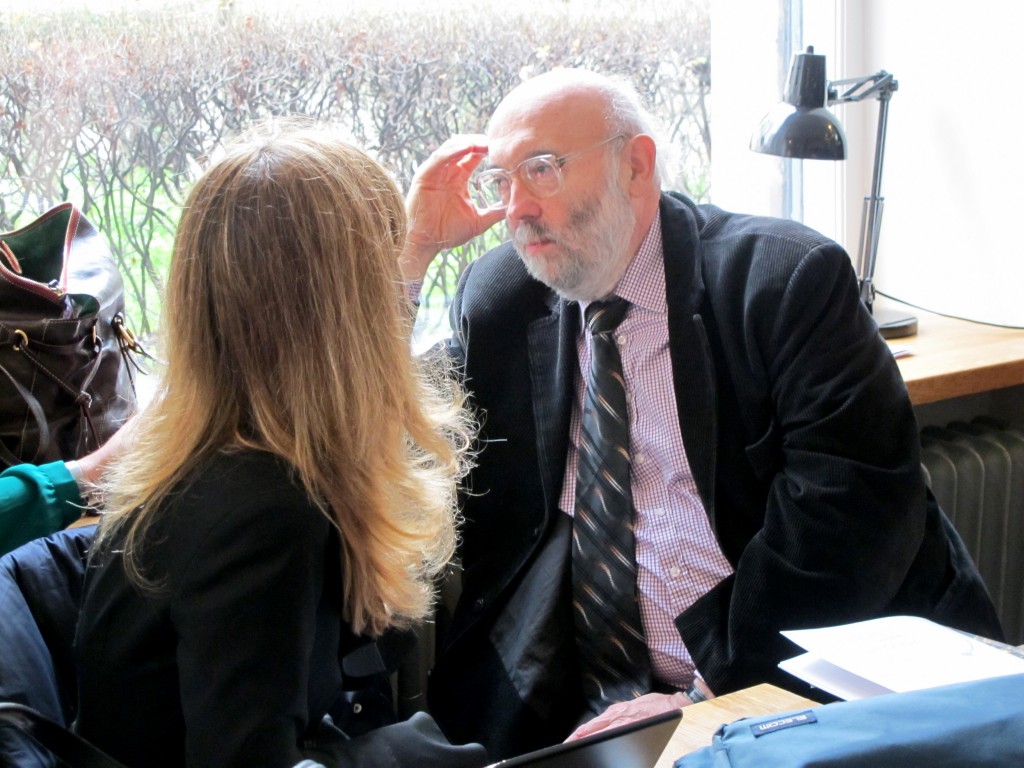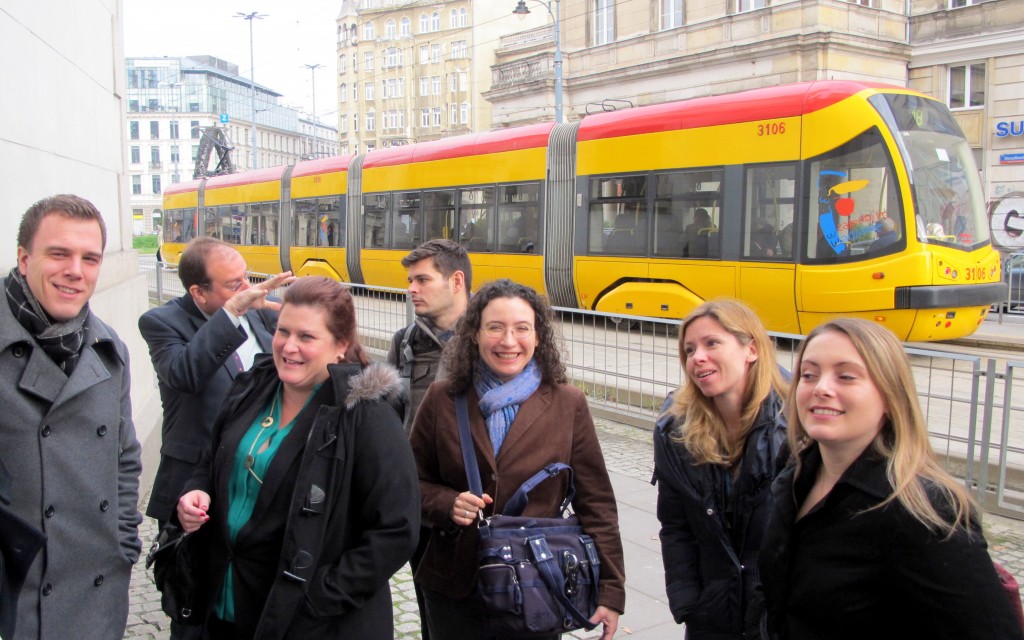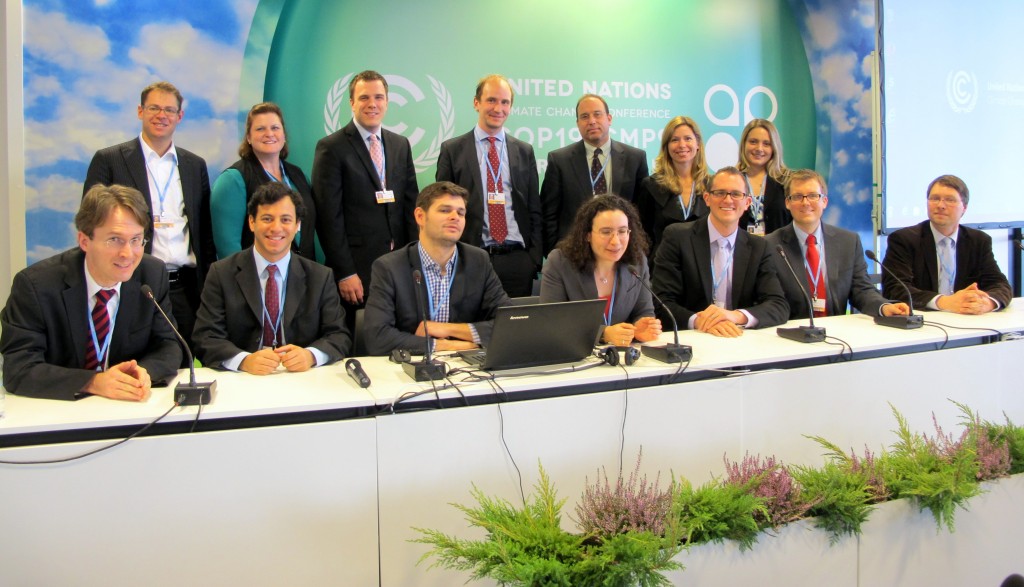The Emerging Leaders in Environmental and Energy Policy (ELEEP) Network brings together young professionals from Europe and North America with the aim of fostering transatlantic relations. As Warsaw prepared to host last month’s UN climate convention (COP19), ELEEP members, including former EGU Science Communications Fellow Edvard Glücksman, sat down for coffee with one of the early pioneers of Poland’s green movement.
Last month, Poland hosted the COP19 UN climate talks amidst a flurry of controversy. One of the EU’s least energy-efficient countries, Poland remains staunchly committed to a future powered by coal and shale gas, presently deriving over 90% of its electricity from the most carbon-intensive of fuels. Polish politicians almost unanimously agree that coal, their ‘black gold’, is critical for the country’s future energy needs – and independence – as well as for the increasingly industrial developing world. They therefore believe that, rather than shifting to renewables, the most sensible next step is to focus on developing greener coal technology, including carbon capture and storage (CCS) and flue gas separation.
However, not everyone shares the coal-centric view held by Poland’s political leadership. According to veteran green campaigner Andrzej Kassenberg, president of the Institute for Sustainable Development, continuing to rely on coal would be a big mistake. Yet, in a bustling coffee shop at the heart of Warsaw, Kassenberg speaks with cautious optimism about his country’s future and the prospect of significantly lowering emissions, even within neighbour Germany’s ambitious 2050-timeframe. To that end, his recently published evidence-based report, 2050.pl – the journey to the low-emission future, thoroughly demonstrates how Poland can continue growing whilst also shedding its addiction to coal.

Andrzej Kassenberg, known to many as the ‘father of Poland’s green movement’. (Credit: Edvard Glücksman)
Time to decarbonise
Recounting his country’s energy story, Kassenberg describes the slow weathering of Polish infrastructure and its ageing fleet of power stations, neglected by generations of narrow-minded politicians keen to promote coal and nuclear quick-fixes. He fears that, should Poland continue to embrace fossil fuels, they too, like Spain, Portugal, and Greece, would fall into a “middle income trap”, their development grinding to a halt without the modern infrastructure needed to support growth. Other nations, he explains, like South Korea and Finland, avoided such a fate because they “decarbonised” before it was too late.
When asked to summarise how Poland’s low-emissions future could work, Kassenberg is quick to suggest that a commitment to drastically overhauling the country’s energy portfolio, mirroring Germany’s ongoing energy transition, would improve almost every sector of Polish society, not least the population’s health. According to the European Environment Agency, Poland experiences the second highest levels of air pollution in Europe; citizens of major cities breathe in the pollution-equivalent to 2,500 cigarettes per year.

Waiting for COP19 to begin, ELEEP members debate the prospect of a greener energy future on the streets of Warsaw. (Credit: Edvard Glücksman)
Shale gas as a transition fuel
Kassenberg maintains a discernible realism when he speaks about the future. He sees shale gas as a potentially effective transition fuel and one that could best be used on the local level by small-scale power stations, complemented by locally harvested renewables. However, he notes that shale has until now been largely neglected in Poland; at present, it gets no mention in the national energy policy agenda, perhaps because reserves lie deeper – and under a denser population – than in the United States.
With such strong political support for coal, how, then, could one go about convincing members of the population to push politicians to go back on their word? According to Kassenberg, much of the challenge lies in understanding how power works in the old East. Democracy, he explains, does not work in Poland as it does in western Europe or North America, primarily because of a lack of basic knowledge and overly short-term planning.
An expensive addiction
To that end, Kassenberg is convinced that policymakers overlook long-term challenges in favour of short-term, local issues and popular grievances, such as unemployment. Voters, in turn, think that energy from renewables would be expensive, failing to understand the high costs associated with a coal portfolio. Polish coal is naturally expensive to exploit, with reserves lying deep underground, making the mining process relatively costly and often more expensive than importing from mining areas that are further afield, such as South Africa. Furthermore, other hidden costs associated with deep-lying coal burden the taxpayer, not least in their subsidising of miners’ health benefits.
In spite of vehement opposition from coal lobbyists, Kassenberg’s arguments provide at the very least a guiding framework through which Poland can cut back on its coal consumption. However, only time will tell whether two rollercoaster weeks in the international climate change spotlight will have compelled the nation’s leadership to reconsider their defiant approach and take action.

ELEEPers at the COP19 UN climate convention, held inside Warsaw’s national football stadium. (Credit: Edvard Glücksman)
By Edvard Glücksman, Postdoctoral Research Fellow, University of Duisburg-Essen
ELEEP is a collaborative venture between two non-partisan think tanks, the Atlantic Council and Ecologic Institute, seeking to develop innovative transatlantic policy partnerships. Funding was initially acquired from the European Union’s I-CITE Project and subsequently from the European Union and the Robert Bosch Stiftung. ELEEP has no policy agenda and no political affiliation.


Pingback: GeoLog | “Please, in my backyard”: Hamburg-Wilhelmsburg’s low-carbon overhaul at the forefront of Germany’s energy transition - GeoLog